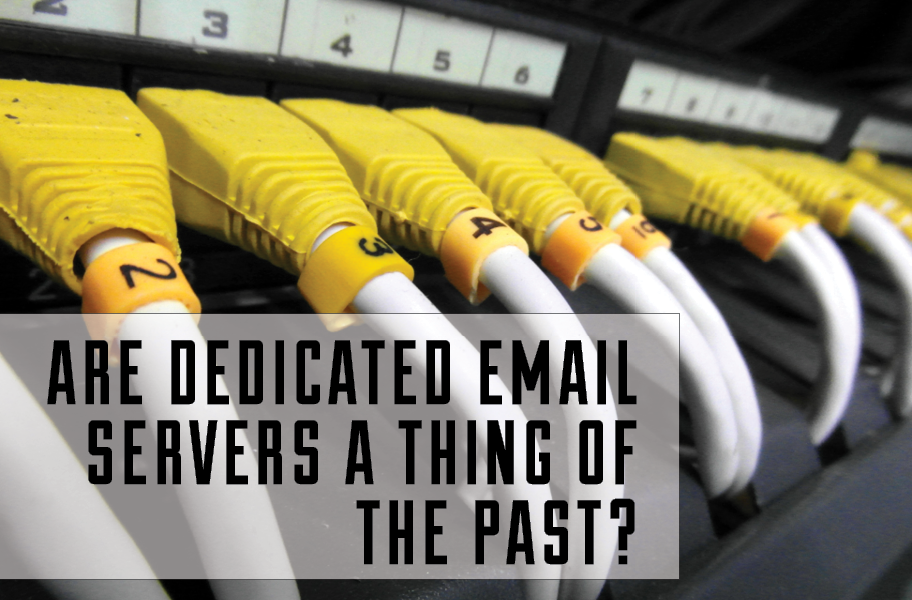Are Dedicated Email Servers A Thing Of The Past?

Over 75 percent of a company’s intellectual property lies in the ideas, documents and projects sent via email. Traditionally, businesses have purchased and maintained dedicated email servers in-house to handle the amount of email traffic. However, maintaining a dedicated email server requires significant amounts of time and money to perform maintenance, upgrades and troubleshooting. With the prevalence of cloud servers, many businesses are ditching the traditional dedicated server for hosted exchange.
A hosted exchange server offers space at an external data center where emails, attachments and other data are stored. Employees access the data through the Web or a desktop application. The host provides all server maintenance, leaving your IT staff with significant amounts of time to tend to other needs.

Since your host stores emails in its data center, employees can login from anywhere or at any time. This helps increase staff productivity.
In-house servers require a significant amount of space. Switching to a hosted server frees up that physical space so you can put it to better use.
Your staff no longer has to troubleshoot problems with email accounts, apply patches or perform system maintenance. The host assumes these responsibilities.
Hosted email servers offer add-ons that enhance productivity, such as calendaring, reminders and notes.
Getting an in-house server up and running takes time, skill and a certain amount of troubleshooting. You need tech experts to accomplish this. With a hosted server, you can be up and running within minutes and you don’t need to perform any of the hard work to enable deployment.
If you’re working late and the email server crashes, no one is on hand to help. If you’re lucky, you can call an IT staff member and he can come in and fix the problem. With hosted exchange, customer support is a phone call or chat message away. Many companies offer 24/7 customer support.
There are many different options for hosted email exchange. Determine what your company needs, then compare the features, support, space and pricing models of several available hosts. Before making any final decisions, review the host’s service level agreement, which spells out what services are covered and what services are not covered. Some hosts help migrate data to the cloud, while others expect you to do it yourself. Some hosts retain ownership over your data if you cancel the service as a way to enforce a continued business relationship. Whatever host you decide to use, there are many benefits of moving to a hosted email server.
